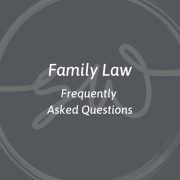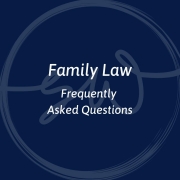How to avoid Court in a family law dispute
The idea of going to Court often creates a sense of dread for people who have separated from their partners. It is important to know that Court is not the only way to resolve your matter with your former partner. In fact, before a person can file proceedings with the Court, a person must usually engage in a process to try and minimise the need to attend court. These actions are known as “pre-action procedures”.
Pre-action procedures are processes designed to encourage parties to genuinely try to reach agreement with respect to their property settlement and/or parenting arrangements, or at the very least to narrow the issues in dispute, before applying to the Court for assistance. This includes the participation in dispute resolution services such as:
- Mediation;
- Collaborative law; or
- Arbitration.
Mediation involves a neutral third party who acts as the intermediary between two former partners. A mediator will assist parties to discuss the issues that they disagree about and generate possible solutions that address both parties concerns. It is important to remember that a mediator will not decide on a resolution or provide you with legal advice, rather they will encourage meaningful discussions between you and your former partner. Mediation can occur with or without your legal representative being present.
Similar to mediation, collaborative law involves an independent facilitator who assists parties and their legal representatives to discuss issues, whether big or small, and generate options as to potential resolutions. The collaborative process is about co-operation rather than confrontation and does not focus solely on “legal issues”. A hallmark of collaborative law is that both parties agree that neither will commence, or threaten to commence, Court proceedings. If negotiations breakdown in collaborative law, both parties are required to obtain different legal representation to proceed to Court.
Arbitration is typically a more formal and structured dispute resolution service compared to mediation and collaborative law. Both parties present their arguments and evidence to an independent arbitrator who then makes a binding and enforceable decision. Parties with technical issues in dispute, or who wish to have greater confidentiality compared to open Court, should consider arbitration.
You and your former partner have many options available to resolve your family law matter outside of Court. These are often more timely and cost effective. For further information on the different dispute resolution services available to you, contact Leona Bennett on (02) 9523 5535.
What do you think?
We would love to hear your thoughts! Feel free to submit your comments below or comment on our Facebook Page or LinkedIn.










Leave a Reply
Want to join the discussion?Feel free to contribute!